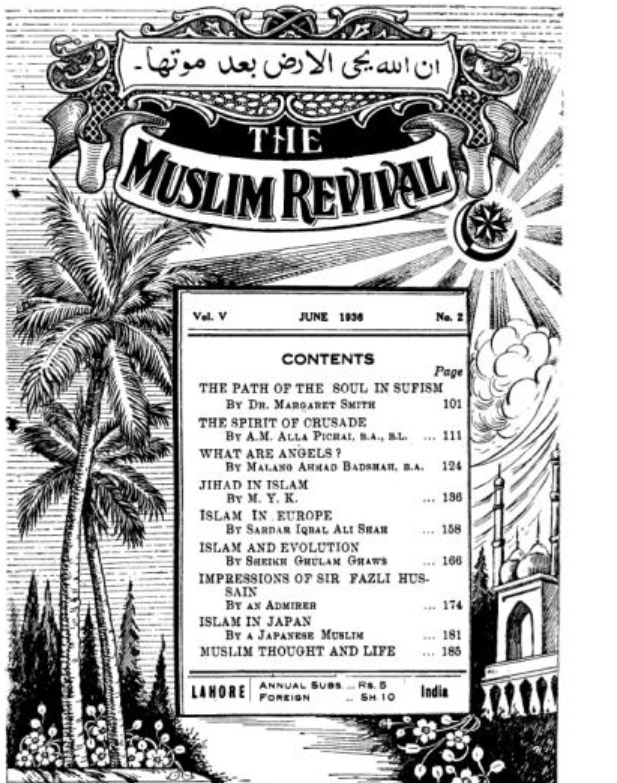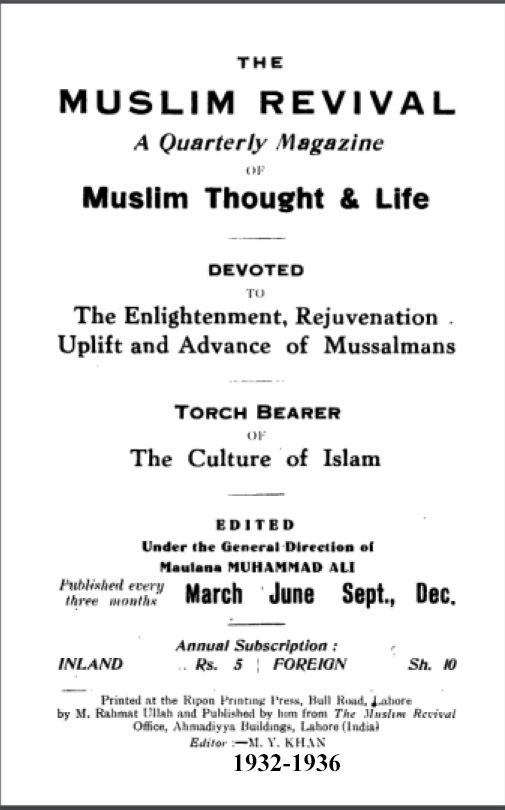Humayun Akhter 1929 – 1988
An adorable, cute and charming baby boy with curly hair, Uncle Humayun Akhtar was born in Lahore (India) in 1929. His mother, Zubeda Begum, wife of Maulana Mohammad Yakub Khan, had a stroke that paralysed the left side of her body at the time of his birth. The infliction made her bedridden until she died on 14th April 1975. Like her spouse, she was a unique individual who possessed the great qualities of an incredible wife and a devoted mother – an indomitable soul who fought her infliction with great patience and courage, and despite her crippled condition, raised and mentored me and my elder brother, and looked after our ailing mother. An article written by her most beloved son, Captain Abdus Salam Khan, The women in my life tells the story of that indomitable soul called Amanjee.
The newly born Uncle Humayun Akhtar was quickly adopted by his maternal grandfather, the illustrious Dr. Basharat Ahmad, and taken to Dalhousie where he completed his early school years. Dr Basharat Ahmad’s two daughters – twin sisters Hamida and Mahmouda – were entrusted with the task of bringing up the child, a task they performed with great love and care.
In 1941, at 12 years of age, Humayun Akhtar returned to his family in Lahore. Here, he saw all his elder siblings getting a tough upbringing by their father Mohammad Yakub Khan – a great Pathan who had himself gone through a tough upbringing by his parents in Pir Piai, KPK province in Pakistan.His father and siblings’ favourite pastime was game hunting picnics outside Lahore in the ponds of Chunian, Kahna and Pandoki villages – often early in the morning before dawn in extremely cold weather conditions. Everyone except him seemed to enjoy those thrilling outings. He could not integrate into his own family for he had not been brought up in a similar style. However, he was extremely intelligent, and particularly gifted in mathematics, which was his pet subject right from the start.
He completed his higher secondary education in Lahore. He was an exceptionally brilliant student, so his father enrolled him at Mughalpura Engineering College Lahore – which was one of the finest institutions in India in those days. He obtained his B.Sc. from there in 1951- a few years after the creation of Pakistan. In the same year, the Government of Pakistan laid down the foundation of Wah Ordnance Factories at Wah near Rawalpindi and announced a scholarship programme for students to be trained in the field of “ordnance manufacturing” in Canada. He won the scholarship along with a handful of other candidates. The parents of all the selected students were asked by the Government of Pakistan to sign indentures in order to ensure the return of all the trainees to Pakistan after the completion of their training. They finally set off for Canada by sea.
Soon after their arrival in Canada, the training commenced. Where in Canada the group arrived and which institution they joined for training in ordnance manufacturing is not known. After the completion of his training, he is said to have joined the Royal Canadian Airforce for his internship and brought home all the qualifications, credentials and certificates.
Uncle Humayun Akhtar had reached the peak of his professional training while still in Canada and about to return home when the tragic part of his life began. Sometime during 1955 -upon completion of his training in the Canadian Ordnance Institute and his internship in the Royal Canadian Airforce, the time had come for his return to Pakistan. For some unknown reasons, he wanted to stay in Canada and violently resisted returning to Pakistan. Had he developed some kind of mental illness – considering his family history, God knows, but his refusal to return to Pakistan led to a conflict between him and the authorities, who sought help from the Pakistan High Commission to force him to return.
Consequently, he was sent back to Pakistan under police custody, arriving in Lahore in 1956. This brought a tragic end to the young prodigy and God gifted Uncle Humayun Akhtar’s prospects, which devastated his parents, siblings and all who knew him.
The indomitable Abaji (Maulana Mohammad Yakub Khan) wrote in his will expressing his feelings about a series of tragedies in his life as follows:
May God grant us strength to bear the lifelong affliction which we have been going through and take it as an opportunity to carry this cross which in God´s inscrutable ways is always the only way to self-purification and self-dedication to a higher cause.
(Extract from the will he wrote after returning from England in 1963)
The family of my grandfather, Mohammad Yakub Khan, besides his wife Zubeda Begum, also included my brother and our mentally disabled mother Zahida Begum. We lived at 17 G Model Town in Lahore when Uncle Humayun Akhtar arrived back from Canada. The huge manor-like house had one room on the second floor where he stayed. During the early period after his arrival he behaved violently. My grandfather decided to admit him to the mental asylum centre in Lahore for treatment. The treatment helped him calm down his aggression to some extent.
During my childhood, I would often see him juggling stones in his hands and strolling in the streets of Model Town all day. He always had lots of change in his pockets – this served to pay for food which he often bought at roadside dhabas (truck stops). He liked walking a lot and travelling by train. One could often find used train tickets in his pockets particularly to Badami Bagh where the river Ravi was a stone’s throw away. He liked staying away from the city’s hustle and bustle and spending time all by himself. He was a tall and handsome man. People would often wish to communicate with him, but he would remain quiet and never responded to anyone. He could not take care of his own hygiene, nor did he have any understanding of his surroundings – he had effectively become a disabled person.
Abaji Mohammad Yakub Khan was a great missionary of Islam who visited England several times serving as the Imam of the Woking Mosque. His visits to England continued between 1920 and 1961, and in between, he would visit Lahore after long periods of stay in England. Despite Humayun Uncle´s worsening mental illness, Abaji kept him together with the rest of the family – perhaps with the hope that his condition would improve so that he could lead a normal life.
In 1964, Abaji laid down the foundation of twin bungalows at Ahmad Park in New Garden Town Lahore and oversaw the construction of both houses. A year later, in January 1965, our family, including Uncle Humayun Akhtar, moved into the newly built house. He was given a room in the annexe to the bungalow.
In the following few years, we watched Uncle Humayun Akhtar passionately scribbling physics and mathematics formulas on every wall of his room, including the veranda, and his will to continue doing so never subsided. Everything that he scribbled on the walls made sense and he never cared what others thought about it. He would frequently relate “The Universal Law of Gravitation” often without taking any pause – which reflected his mind brimming with an enormous amount of knowledge. I used to seek his help in understanding elementary formulas in algebra – he would always explain these in a matter of seconds.
The unending trials and tribulations of the family continued when on 7th July 1966, Abaji had a stroke which paralysed him and brought to an end his normal life activities – adding a further burden onto his sons who jointly contributed towards the maintenance of a completely disabled family. Uncle Aslam, Uncle Salam and Uncle Yousaf shared the burden of the household until their parents’ last breaths. It was perhaps due to this situation, in addition to the fact that Uncle Humayun Akhtar still, at times, acted violently, that it was decided in 1968 to admit him to “Government Mental & General Hospital” in Dhodial (District Mansehra, KPK) meant for the treatment of mentally ill patients. Consequently, he spent several years in Dhodial. I can vividly recall that in 1969, while on a visit to meet his parents and children in Abbottabad, Uncle Abdus Salam drove to Dhodial to meet him.
During the early 80s, Uncle Humayun Akhtar returned from Dhodial to Lahore for good. With the elder brother Uncle Abdus Salam at the helm of the affairs of the household, he enjoyed living with the family. In 1988, he was taken seriously ill and was admitted to Gulab Devi Hospital in Lahore. Uncle Abdus Salam, Uncle Yousaf, and I visited him at the hospital, where he breathed his last breath in January 1988. While in the hospital for the last remaining few days of his life, he asked me for help several times to leave the hospital, but I could see that he could not even lift himself out of bed – let alone go out and enjoy the long walks that he had always enjoyed throughout his life.
May his soul dwell in paradise – Ameen.
By
S. Ahmad







